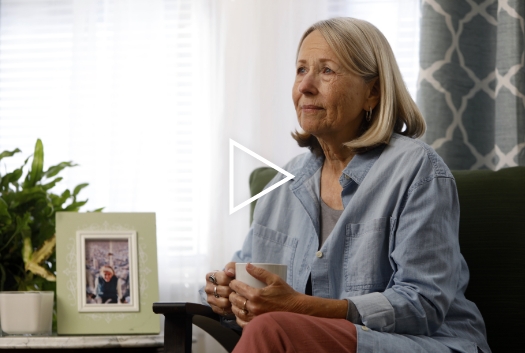Treatment is Available
Substance Use Disorder is Treatable
Treatment for substance use disorder takes time and dedication but is effective. While substance use disorder is a chronic disease that can't be cured, treatment empowers people to live fulfilling, active lives in recovery.
There are many types of evidence-based treatment available, including intensive inpatient, outpatient, residential, or day treatment. Drug treatment facilities offer a wide range of programs and services that can be adapted to meet each patient’s unique recovery needs.
Medication-Assisted Treatment
The most effective method of treatment for opioid use disorder is medication-assisted treatment (MAT). MAT combines counseling and cognitive behavioral therapy with FDA-approved medication for opioid use disorder (MOUD).
Don't Wait, Get Help Now
- Connections to Treatment – Finding treatment shouldn’t be overwhelming. Treatment Atlas helps you find addiction treatment that meets your needs. Through this provider search, you can select the type of treatment you're looking for and view options available in your area.
FIND TREATMENT OPTIONS - 2-1-1 – Remember, addiction is treatable and it is never too early or too late to ask for help. If you or someone you know needs immediate assistance, dial 2-1-1 to be connected to available providers. 2-1-1 is a free and confidential service that helps Hoosiers across Indiana find the local resources they need. The service is available 24 hours a day, 7 days a week.
- Suicide & Crisis Lifeline – If you or someone you know is currently experiencing thoughts of suicide, or a mental health or substance use crisis, please call 9-8-8 to reach the Suicide & Crisis Lifeline to speak with a trained crisis specialist 24/7.
TREATMENT BY THE NUMBERS
26
opioid treatment programs across Indiana1
252
certified outpatient addiction treatment providers1
2,850
beds in residential treatment facilities1
+660%
increase in residential treatment beds since 20171
14,500
Hoosiers served each year by opioid treatment programs since 20171
24,600
naloxone kits distributed monthly in Indiana1
450,000
Medicaid members have accessed treatment since 20181
Learning More About Treatment
- How can I recognize unhealthy drug use?
Recognizing unhealthy drug use can be difficult because the signs and symptoms can vary depending on the drug being used and the individual's personal circumstances. But there are some general signs that may indicate someone is engaging in unhealthy use.
- Physical symptoms: Dilated pupils, bloodshot eyes, slurred speech, impaired coordination, or unexplained weight loss.
- Changes in behavior: Social withdrawal, increased secrecy, mood swings, changes in sleep patterns, or a lack of interest in hobbies or activities that were previously enjoyed.
- Financial problems: Inability to meet financial obligations, difficulty maintaining employment, or sudden financial trouble.
- Relationship problems: Trouble maintaining personal and professional relationships.
- Legal issues: Arrests, DUIs, or other criminal charges.
- When should someone see a doctor or seek emergency help for SUD?
Substance use disorder can be a serious and potentially life-threatening condition, so it's important to know when to see a medical professional. Below are some situations when someone should seek medical attention:
- Severe withdrawal symptoms: If someone experiences severe withdrawal symptoms, such as seizures, hallucinations, or delirium tremens (DTs) due to alcohol, benzodiazepine, or other drug withdrawal, they should seek emergency medical attention immediately.
- Overdose: If an individual has overdosed on drugs or alcohol, they need emergency medical attention. Symptoms of overdose may include slowed breathing, loss of consciousness, seizures, or cardiac arrest.
- Chronic or severe addiction: A person with chronic or severe addiction may need medical supervision and support to safely manage withdrawal symptoms and begin treatment.
- Co-occurring mental health conditions: People with co-occurring mental health conditions, like depression, anxiety, or bipolar disorder, may require specialized treatment to address both their addiction and their mental health.
- Other medical complications: Unhealthy substance use can lead to a range of medical complications, including liver disease, HIV/AIDS, or infections related to injection drug use. If an individual is experiencing any medical complications as a result of their substance use, they should seek medical attention right away.
If you or someone you know is struggling with substance use disorder, seek help. A healthcare provider or addiction specialist can provide an evaluation and recommend appropriate treatment options.
If you or someone you know is currently experiencing thoughts of suicide, or a mental health or substance use crisis, please call 9-8-8 to reach the Suicide & Crisis Lifeline to speak with a trained crisis specialist 24/7.
- What are the different types of treatment for substance use disorder?
There are several types of treatment available for substance use disorder. A comprehensive treatment plan should be tailored to each individual's specific needs and can involve a combination of different treatments. Common treatments include:
- Medication-assisted treatment (MAT): MAT involves the use of medications, such as methadone, buprenorphine, or naltrexone, to help manage cravings and withdrawal symptoms for opioids, alcohol, or other drugs.
- Behavioral therapy: Cognitive Behavioral Therapy (CBT) helps people identify and change negative thought patterns and behaviors.
- Residential treatment: Residential, or inpatient treatment, involves living in a treatment facility and participating in intensive therapy and support programs.
- Outpatient treatment: This involves attending therapy sessions and support groups on an outpatient basis, while still living at home and continuing to work or go to school.
- Does medication-assisted treatment work?
Yes, medication-assisted treatment (MAT) is effective in treating substance use disorders, particularly opioid and alcohol use disorders. MAT combines the use of medications, like methadone, buprenorphine, and naltrexone, with behavioral therapy to help individuals manage their addiction and achieve long-term recovery. These medications reduce cravings, withdrawal symptoms, and the risk of overdose.
Currently, there are three FDA-approved medications used to treat opioid use disorder:
- Methadone: Methadone is a long-acting opioid agonist that helps reduce withdrawal symptoms and cravings and is administered in specialized Opioid Treatment Programs.
- Buprenorphine: Buprenorphine is a partial opioid agonist that can reduce cravings and withdrawal symptoms. This medication can be prescribed by healthcare providers in a variety of settings, including primary care offices.
- Naltrexone: Naltrexone is an opioid antagonist that blocks the effects of opioids and reduces cravings. It can be taken as a daily pill or administered as a monthly injection
- How can I encourage someone to seek treatment?
Encouraging someone to seek treatment can be challenging, as many individuals with addiction may be in denial or resistant to getting help. Use these strategies to get started:
- Educate yourself: Learn about addiction and treatment options so that you can speak from a place of knowledge and empathy, not stigma.
- Express your concern: Let your loved one know you care about them and feel worried about their well-being.
- Be supportive: Offer your emotional support or help them find a healthcare provider, addiction specialist, or support group.
- Don’t blame or shame: Remember that addiction is a disease, not a moral issue. Avoid using judgmental language or blaming the person for their addiction.
- Highlight the benefits of treatment: Explain how seeking treatment can improve their life. Share stories of people who successfully recovered from substance use disorder.
- Set boundaries: If the person is resistant to seeking treatment, set boundaries to protect your own mental and emotional health.
The decision to seek treatment is up to each individual. But, you can express your concern, offer support, and educate yourself about addiction and treatment to help them in the process.
- How can family support a loved one with substance use disorder?
We recommend seeking support through the Overdose Lifeline® CRAFT program. CRAFT uses positive reinforcement to help someone move toward recovery. Through CRAFT, family members of those with substance use disorder can gain valuable coping skills to help reduce depression, anxiety, and anger.
What You Can Do
START THE CONVERSATION
- Watching a loved one struggle with substance use disorder can be difficult and confusing. You may not know what to say. The best thing to do is show compassion and listen without judging, guilt-tripping or justifying behavior. Instead, ask about what’s happening and listen.
- Don’t know where to start? Try this:

- If you’ve struggled with substance use disorder and
feel safe sharing your story, tell someone about
your experience. When we’re open to talking about
how this disease impacts us, it helps others see
beyond the stigma and change perceptions.


SEE THE PERSON
- Once you’ve started a conversation, focus on listening and giving support, but don’t try to fix the problem. Your loved one must decide to seek treatment, but you can encourage them and offer to help them explore their options. Recovery can feel like an impossible goal for someone with a substance use disorder. That’s why encouragement and support can be so powerful.
- People who have loved ones with substance use disorders also need support. Consider starting a conversation and holding space for them to voice their frustrations, feelings, and fears. Don’t know what to say? Try this:

Choosing to See My Child, Not Her Addiction
I had changed the locks. Didn't even know where she was living. And then one night she calls to say she's getting treatment, can I drive? I almost hung up. But then I thought, that's my kid. I chose to put away the hurt and fear and just see my girl.
Many of the photos included on this webpage are original photography featuring paid actors. These photos do not represent individuals who have substance use disorders or are living in recovery. The exception to this are photos of people who are named and share their personal stories about substance use disorder. We are grateful for these individuals’ willingness to come forward to help reduce the stigma of substance use disorder and provide encouragement to those living with this chronic disease.
1. Indiana Department of Health. 2024 Next Level Recovery Progress Report. Published November 2024.


